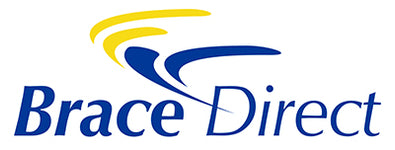
Degenerative Disc Conditions: Causes & Relief
Degenerative Disc Conditions—including Cervical Disc Syndrome, Disc Prolapse, Spondylosis, Stenosis, and Arthritis—are common cervical spine issues that can lead to chronic neck pain, stiffness, and nerve-related symptoms. Over time, wear and tear on cervical discs causes them to lose height, develop small tears, or push outward, compressing nerves and limiting mobility.
Below, you’ll learn about common signs of degeneration, how neck bracing supports healing, and our top product recommendations to relieve pain and restore comfort.
Common Symptoms & Causes of Cervical Disc Degeneration
- Neck Pain & Stiffness: Discomfort worsens as discs thin or bulge, reducing flexibility.
- Nerve Compression: Tingling, numbness, or weakness in the shoulders, arms, or hands due to pinched nerves.
- Chronic Headaches: Often triggered by inflammation in the neck’s joints and muscles.
- Limited Range of Motion: Turning or bending the neck can become painful and difficult.
- Wear & Tear: Aging, repetitive strain, or injury accelerates disc breakdown, leading to spondylosis or stenosis.

Key Cervical Disc Conditions
Cervical Disc Prolapse (Slipped Disc): Inner disc material pushes out through a tear, pressing on nerves and causing radiating arm pain or numbness.
Cervical Disc Syndrome: Degenerated or inflamed discs irritate nearby nerves, resulting in headaches, stiffness, and pain radiating to shoulders or arms.
Cervical Spondylosis: Age-related wear, bone spurs, and disc shrinkage that limit mobility and may pinch spinal nerves.
Cervical Stenosis: Narrowing of the spinal canal, which can compress the spinal cord or nerve roots, leading to weakness or balance problems.
Arthritis & Osteoarthritis of the Neck: Joint inflammation causes stiffness, reduced range of motion, and chronic discomfort.
How Neck Braces Help Degenerative Disc Conditions
Neck braces stabilize the cervical spine and limit painful movements, giving discs and surrounding tissues time to heal. They also promote better posture, reduce nerve compression, and serve as a reminder to avoid sudden head or neck motions. For many degenerative disc issues, bracing can:
- Relieve Pain: By offloading stress from injured discs and inflamed joints.
- Support Proper Alignment: Keeping your head upright reduces pressure on nerves and discs.
- Enhance Recovery: Protecting weakened areas while you pursue physical therapy and gentle exercise.
Top 3 Braces for Degenerative Disc Relief

Brace Direct Cervical Neck Traction Unit
Professional-grade traction to decompress discs, reduce nerve pressure, and relieve chronic pain.
Shop Now
Breg Carlsbad Adjustable Cervical Collar
Offers stable support for disc syndrome, arthritis, and spondylosis, helping maintain proper alignment.
Shop Now
Ossur Foam Cervical Collar
Soft yet supportive for daily wear, relieving mild-to-moderate neck pain and stiffness.
Shop NowManage Your Neck Health & Alleviate Pain
Don’t let degenerative disc conditions disrupt your everyday activities. Our braces and traction devices target painful areas, promote alignment, and give your neck the support it needs to heal. Combine bracing with physical therapy, posture adjustments, and active self-care for the best results.
Shop All Neck Braces












